Formalism-agnostic Quantum Hardware Simulation
Stefan Krastanov | UMass Amherst
U. Arizona, Harvard, MIT, Yale, BYU, U. Chicago, Howard University, U. Oregon, UMass Amherst, NAU
The Quantum Technology Stack
Materials
Analog Control
Noisy Digital Circuits
Error Correction
Quantum Algorithms
Full-Stack Design and Optimization Toolkit
Symbolic description of quantum logic
Declarative noise models
Translation to many simulator backends
Discrete event scheduler
High-level lego-like interface
Symbolic description of quantum logic
Build uponSymbolics.jl and many "backend" libraries.
Full Symbolic Computer Algebra System
julia> Z₁
|Z₁⟩
julia> ( Z₁⊗X₂+Y₁⊗Y₁ ) / √2
0.707 (|Y₁⟩|Y₁⟩+|Z₁⟩|X₂⟩)
Symbolic to Numeric Conversion
julia> express( ( Z₁⊗X₂+Y₁⊗Y₁ ) / √2 )
Ket(dim=4)
basis: [Spin(1/2) ⊗ Spin(1/2)]
0.8535533905932736 + 0.0im
0.0 + 0.3535533905932737im
-0.49999999999999994 + 0.3535533905932737im
-0.3535533905932737 + 0.0im
julia> express( Y₁⊗Y₂, CliffordRepr() )
Rank 2 stabilizer
+ Z_
+ _Z
════
+ Y_
- _Y
════
The express interface
express(::Symbolic, ::Representation, ::Use)
express_nolookup(::Symbolic, ::Representation, ::Use)
Caching with express
julia> op = X;
julia> express(op);
julia> op.metadata
Dict{...}(
(QuantumOpticsRepr(), UseAsState()) => QuantumOptics.Operator
)
julia> express(op, CliffordRepr(), UseAsOperation());
julia> op.metadata
Dict{...}(
(QuantumOpticsRepr(), UseAsState()) => QuantumOptics.Operator,
(CliffordRepr(), UseAsOperation()) => QuantumClifford.sX
)
Translation to many simulator backends
traits = [Qubit(), Qubit(), Qumode()]
reg = Register(traits)

A register "stores" the states being simulated.
initialize!(reg[1], X₁)
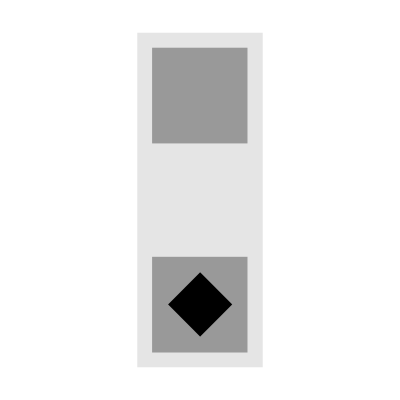
A register's slot can be initialized to an arbitrary state, e.g. $|x_1\rangle$ an eigenstate of $\hat{\sigma}_x$.
initialize!(reg[1], X₁)
initialize!(reg[2], Z₁)
apply!((reg[1], reg[2]), CNOT)
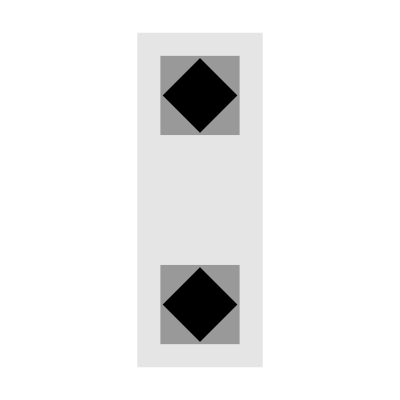
Arbitrary quantum gates or channels can be applied.
initialize!(reg[1], X₁)
initialize!(reg[2], Z₁)
apply!((reg[1], reg[2]), CNOT)
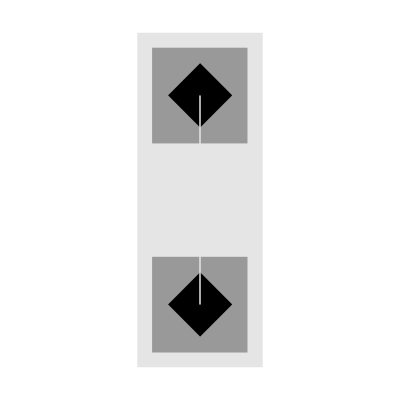
Arbitrary quantum gates or channels can be applied.
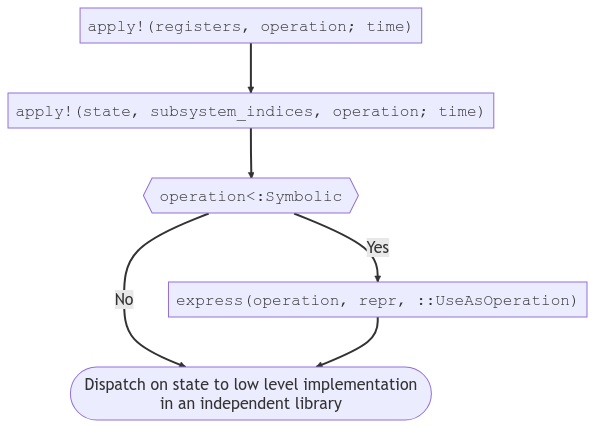
project_traceout!(reg[1], σˣ) # Projective measurement
observable((reg[1],reg[2]), σᶻ⊗σˣ) # Calculate an expectation
Measurements and expectation values...
Automatic tracking of noise processes
reg = Register([Qubit(), Qubit(), Qubit()])

reg = Register(
[Qubit(), Qubit(), Qubit()]
[T1Decay(T₁), CoherentError(ε*σᶻ), NZ(...)]
)

reg = Register(
[Qubit(), Qubit(), Qubit()]
[T1Decay(T₁), CoherentError(ε*σᶻ), NZ(...)]
)
apply!((reg[1],reg[2]), CNOT; time=τ₁)

reg = Register(
[Qubit(), Qubit(), Qubit()]
[T1Decay(T₁), CoherentError(ε*σᶻ), NZ(...)]
)
apply!((reg[1],reg[2]), CNOT; time=τ₁)
apply!((reg[2],reg[3]), CPHASE; time=τ₂)

Discrete event scheduler
Locks and channels, message passing, delays, concurrency, agent-based sims...Discrete event scheduler
High-level lego-like interface
QuantumSavory.jl
github.com/QuantumSavory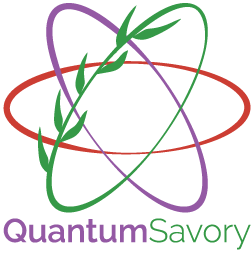
prerelease...
A few state-of-the-art Simulators
The wider Julia ecosystem
QuantumOptics.jl, ITensors.jl, Yao.jl, quantum chemistry and solid state tools, EM tools, multiphisics classical tools, etc
Most sophisticated Clifford algebra simulator
github.com/QuantumSavory/QuantumClifford.jl Multiplying two 1 gigaqubit Paulis in 32 ms.With upcoming "Google Summer of Code" contributors working on GPU acceleration and ECC zoo.
MIT and UMass students working on code generators.
Incoming master student working on code decoders.
As an "algebra" tool: random states, gate enumeration, canonicalization, partial traces, projections.
random_stabilizer(5,10) |>
canonicalize_clip! |>
naive_syndrome_circuit
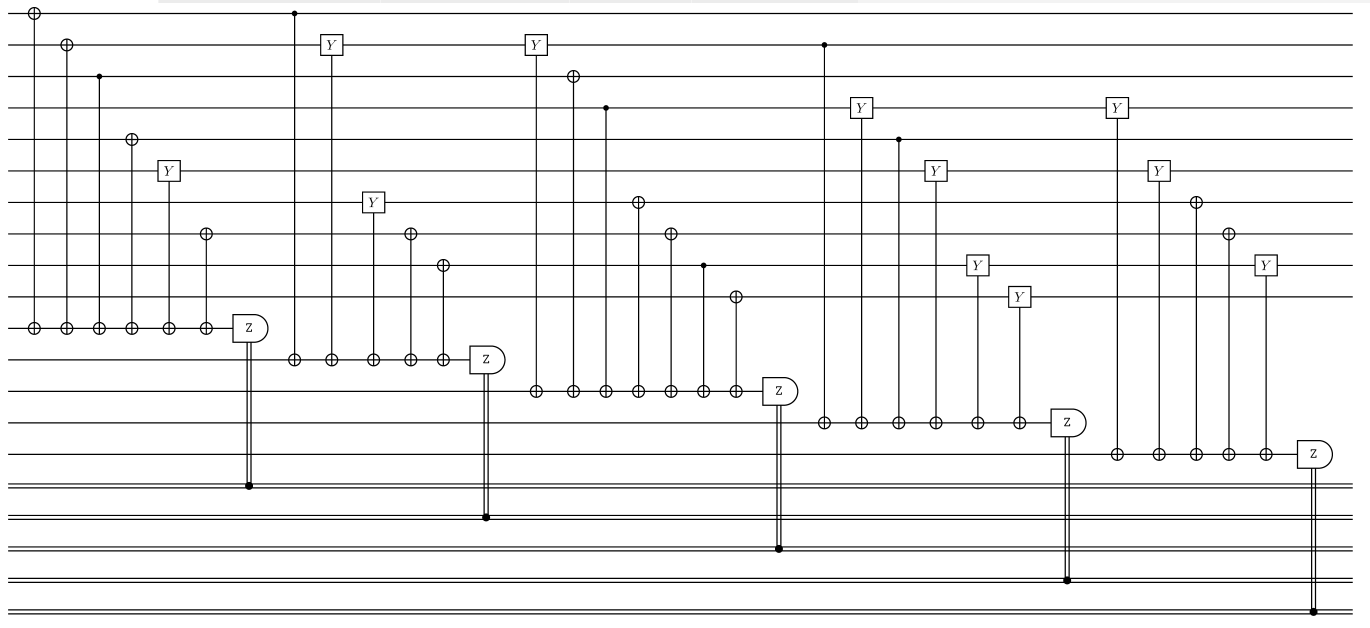
As an "circuit simulation" tool: Monte Carlo, Pauli frames, and perturbative expansions.
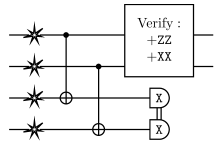
Dict{CircuitStatus, Num} with 3 entries:
failure => 4e*((1 - 3e)^3)
false_success => 6e*((1 - 3e)^3)
true_success => (1 - 3e)^4 + 2e*((1 - 3e)^3)
support for non-Clifford expansions, conversion to QuantumOptics.jl objects and more...
Faster-than-Clifford Bell Pair circuits
github.com/QuantumSavory/BPGates.jl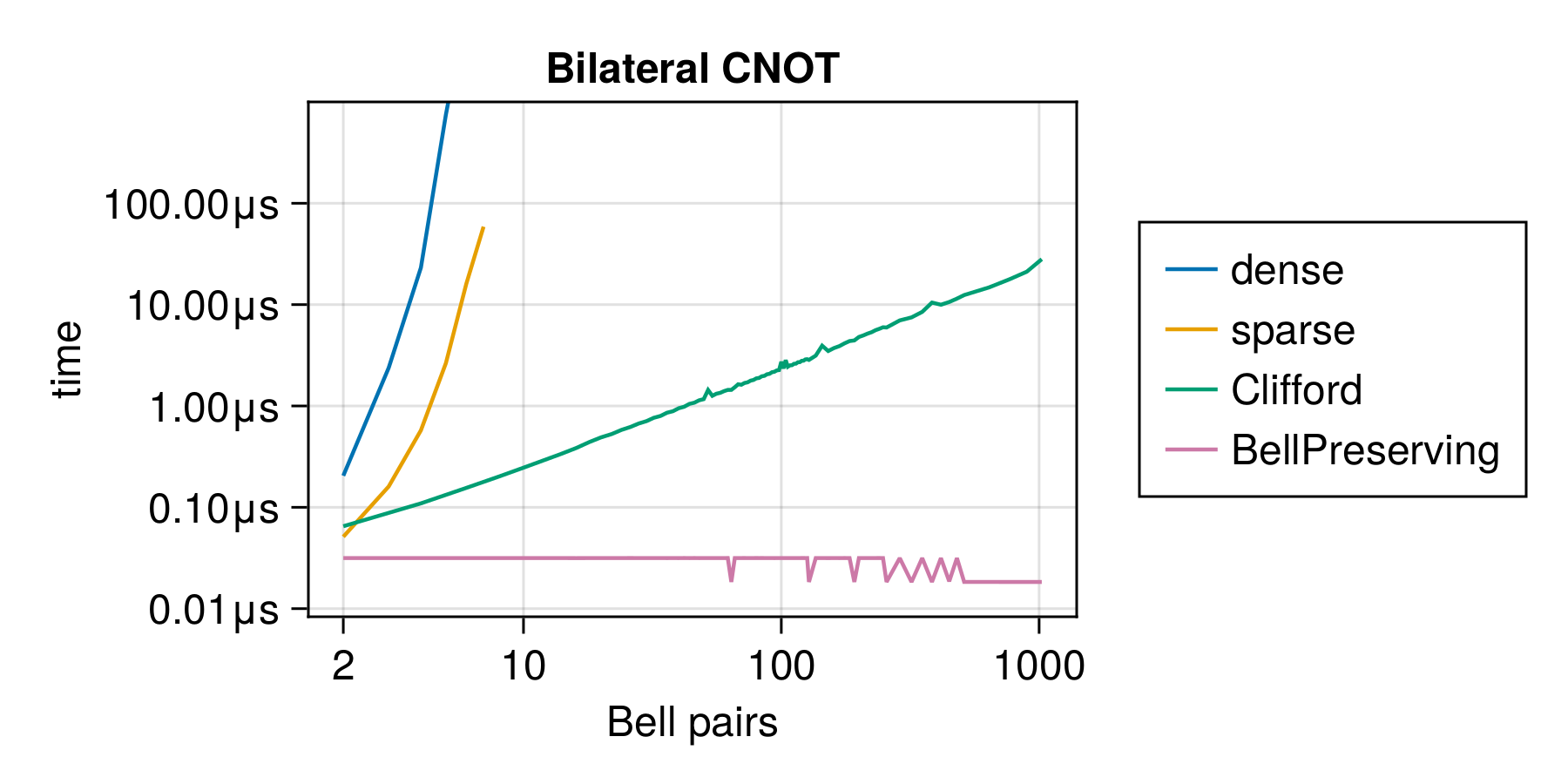
Waveguide Quantum Electrodynamics
github.com/qojulia/WaveguideQED.jl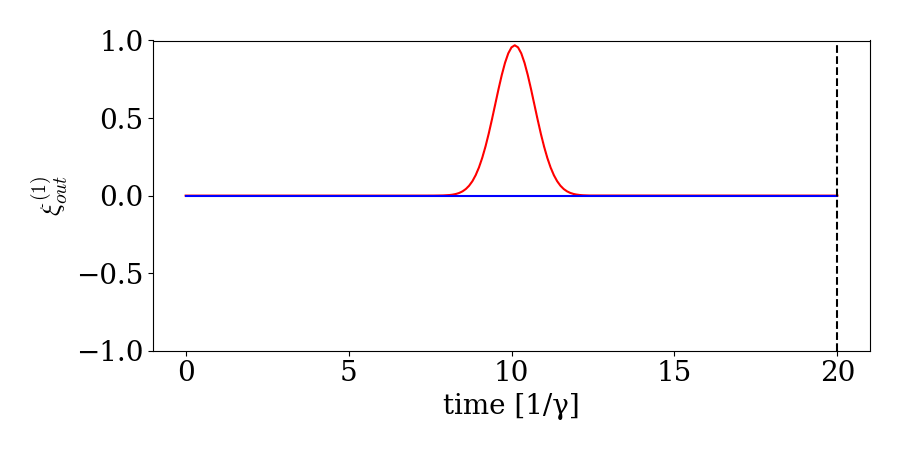
Taking Optimization Seriously
Even your Monte Carlo simulations should be "differentiable"!QuantumInterface.jl
github.com/qojulia/QuantumInterface.jl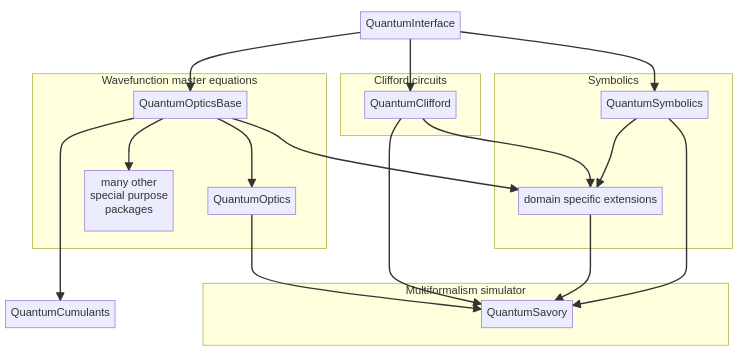
We are hiring both at UMass Amherst and MIT:
software engineering
quantum science
Message at stefankr@mit.edu, skrastanov@umass.edu
Including work done with Vaishnavi Addala, Shu Ge, Shayan Pardis, Chen Zhao, Hong-Ye Hu, Dirk Englund, Saikat Guha.
Consider gradschool or postdoc at UMass Amherst:

Design of optical/mechanical/spin devices with Sandia, Mitre, and MIT.
Working on practical LDPC ECC in networking and computing with CQN.
Creating new tools for the entire community.